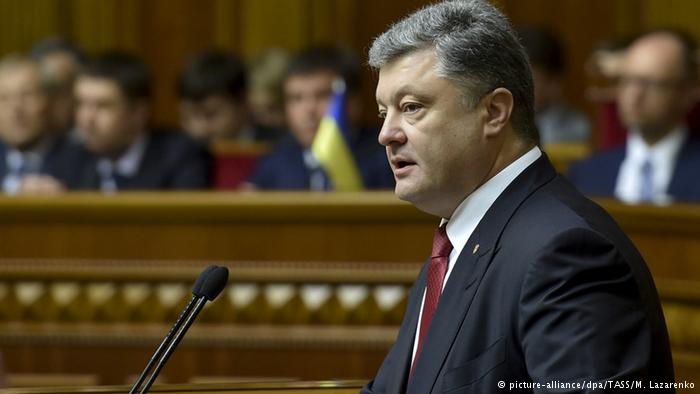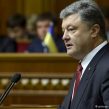
Elections in the Donetsk-Luhansk ‘People’s Republics’ Have No Legal Basis
Publication: Eurasia Daily Monitor Volume: 12 Issue: 146
By:

Local elections are looming in the Donetsk and Luhansk “people’s republics” (“DPR, LPR”) in October. If validated internationally, such elections could lead to internal Ukrainian constitutional negotiations that would preserve the Russia-Ukraine conflict—unsolved, but in a different form. It would conclusively vindicate Russia’s thesis about this conflict being internal to Ukraine, not a state-on-state conflict. Russia would no longer bear the brunt of responsibility for it.
Ukrainian law, however, provides no basis for elections of any kind to be held in territories beyond the legitimate government’s control. Ukrainian legislation invalidates in advance any elections that might be staged in the “territories under temporary occupation,” specifically Crimea and the Russian-controlled parts of the Donetsk and Luhansk provinces. The “DPR” and “LPR” lay claim to rule that territory in Ukraine’s east and are currently seeking legitimization through local elections.
The law on “Special procedures of local self-administration in certain areas of the Donetsk and Luhansk provinces,” adopted on March 17 by the Verkhovna Rada and promulgated on March 18 by President Petro Poroshenko, stipulates preconditions for any valid elections in that territory under Russian and secessionist control. Under this law, those special procedures for local self-administration can only go into effect after legitimate local authorities will have been elected in free and fair elections.
That law enumerates the standard requirements for free and fair elections to be held in that territory, to wit: conformity with Ukraine’s constitution and electoral legislation, the participation of Ukrainian political parties on non-discriminatory terms, free campaigning, full access of voters to free media, the withdrawal of unlawful armed forces, guarantees against violent interference with the electoral processes, safety guarantees for voters and candidates, voting rights for internally displaced persons (i.e., residents who fled to other parts of Ukraine), adherence to the Organization for Security and Cooperation in Europe’s (OSCE) election standards, and observation by the OSCE’s Office of Democratic Institutions and Human Rights (ODIHR) of the electoral campaign and balloting at all stages (Ukrinform, March 17, 18).
On July 14, the Verkhovna Rada (national parliament) adopted the law on local elections, which provides the legal basis for electing the administrations of provinces, districts, towns and villages throughout Ukraine. Referencing the law adopted on March 17 (see above), the July 14 law stipulates that local elections shall not be conducted in Crimea and in the Donetsk-Luhansk territories “during their temporary occupation by the Russian Federation.” This law’s transitory provisions ascertain the fact that Ukrainian law and democratic election standards are impossible to uphold in those territories (Rada.gov.ua, July 14; Ukrinform, July 15).
Next, on July 17, the Verkhovna Rada adopted the resolution to schedule local elections throughout the country on October 25, except in the “temporarily occupied” Crimea and Donetsk-Luhansk territories. The resolution reiterates that local elections can be held there when the Russian Federation’s aggression and temporary occupation cease (Rada.gov.ua, Ukrinform, July 17). All this makes clear that Ukraine would not willingly consent to legitimize fake elections there (see EDM, July 20).
It is the intent of the above-referenced Ukrainian legislation to establish a sequence of steps that would reintegrate that territory into Ukraine’s legal framework. The first, irreplaceable step is to establish the prerequisites to holding free and fair elections (see above). The second step would be to hold elections that could produce legitimate representatives of the local population (the incumbent armed leaders would not be deemed eligible). And in the next step, the law on the “Special procedure on local administration” (see above) would go into effect, possibly after reviewing it with the legitimately elected local representatives.
Russian and, now, Western diplomacy insist on a reverse sequence, whereby local elections would be held first, in the absence of legal and democratic prerequisites (see EDM, August 3). This sequence would inevitably legitimize local pro-Russia leaders. It is patently obvious that no conditions exist for conducting free and fair elections in the “DPR-LPR”-claimed territory.
Some Western governments are hinting at a cosmetic solution whereby OSCE-ODIHR would assist with preparing local elections in that territory and then observe the elections there (as it would throughout Ukraine). In that hypothetical scenario, the elections might be declared to have reflected voters’ preferences “on the whole,” and, with due acknowledgment of irregularities, be validated.
In the Minsk Contact Group’s meetings on July 21 and August 3, the OSCE proposed that Ukraine adjust its own electoral legislation, taking into account the “DPR-LPR’s” proposals, and negotiate mutually acceptable modalities for holding elections there, as part of Ukraine’s country-wide elections (Belta, Ukrinform, Interfax, July 21, August 3). While the OSCE is tight-lipped, the Russian side is typically silent at the conclusion of Contact Group meetings. Outside the Contact Group’s format, Russian diplomacy seems content to watch Western governments pressure Kyiv to accept local elections in Ukraine’s Russian-controlled territory.
President Poroshenko sounds hesitant at times, buffeted by countervailing pressures on this issue (see EDM, July 9, 10, 20, 24). Following the latest Contact Group meeting, Poroshenko objected that Ukraine could not go along with “fake elections” in that territory (UNIAN, August 4).
If elections are nevertheless held, they would install local councils and leaders at the level of districts, towns and villages, not the “central” leaderships of the two “people’s republics.” Those “central” leaders were installed through the “elections” of November 2, 2014. Russia alone validated that outcome; the West never did. Nevertheless, those same leaders and their direct representatives are accepted by the West de facto, and are negotiating with Kyiv in the Contact Group.
Holding and validating local elections in that territory would create the false impression that the two “people’s republics” may, after all, have started on the road to democracy. The “election” of local leaders would indirectly enhance the standing of the “DPR-LPR” as such and their leaders. Such elections, even if “fake,” would hand them a spurious mandate, strengthening their hand and that of Moscow against Ukraine in the further negotiations.




